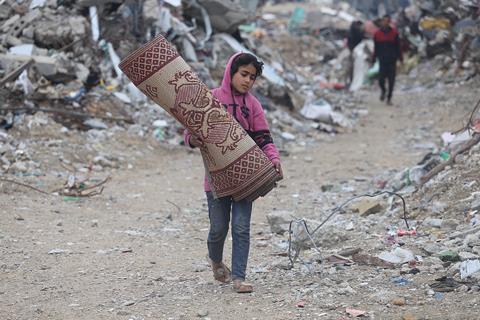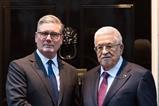As Donald Trump suggests turning Gaza into a “riviera”, Dr Harry Hagopian urges Christians to listen instead to the viewpoints of local Palestinian Christians, and to continue to pray for both peace and justice

There was considerable shock and consternation on the faces of many Arab Christians and Muslims across the Middle East when President Donald Trump suggested the Palestinian residents of Gaza should be relocated to Egypt and Jordan.
Trump argued that the Gaza Strip, which consists of 140 square miles of land located in the southwest corner of Israel along the coast of the Mediterranean Sea, was uninhabitable. They should go away, he insisted, so the USA would clean up the rubble and develop these lands into a new and gleaming Mediterranean Riviera.
A Riviera? Who will do the heavy lifting in terms of financing the whole project and re-building what was destroyed by Israel during the past 15 months? And more to the point, what is a Riviera according to the US president? Trump hotels and golf courses? Or will this tiny strip simply be viewed as a terra nullius so that Israeli settlers move in and establish their illegal settlements and outposts as they have done unrelentingly across the West Bank?
Whether President Trump is predictable or otherwise is not the issue here - not for me anyway. The real issue is that someone living in the White House would determine who lives in a land that is some 6,000 miles away.
Gaza is indeed devastated, but a majority of its Palestinian residents still consider it home and do not wish to forsake it. It is about their unarguably legitimate right to their land and property that cannot be appropriated from them, let alone about their culture, history, pride and ultimately their steadfastness.
Remember, some 700,000 Palestinians were driven out of their homes in 1948 and never allowed back. They called it the Nakba (great catastrophe in Arabic). The same thing happened in 1967 when some 250,000 Palestinians fled to Jordan after the Arab-Israeli war and were never allowed to return either. They call it the Naksa (setback in Arabic). So Palestinians are under no illusion that once they leave Gaza, they will never be allowed to return to it. Hence the opposition by a majority of them to be transported to host-countries like Egypt or Jordan that can ill afford to welcome them anyway due to political or economic considerations.
Palestinian Christians have lived in the land for millennia. It is not for us to tell them how to think or live
My proposal, as a conflict resolution lawyer who was also a second-track negotiator during the Oslo chapter of negotiations in the 1990s and early noughties, is that the solution would involve the Arab countries, hand-in-hand with the EU, the UN and international financial institutions, undertaking to reconstruct the Gaza Strip while keeping the Palestinians on their lands. In return, there will be a peace agreement between Israel and Palestine premised on the Arab Peace Initiative of 2002 that was adopted unanimously at the Arab League Summit in Beirut and which involved Israel returning the occupied territories back in return for recognition of Israel by all 57 Arab and Muslim states worldwide. This will keep Palestinians on their land, while ensuring peace at long last in the region, and the US can still see new trade routes and new economic alliances or Abrahamic accords without depopulating a whole people from their lands.
This solution would be one that ensures peace with justice and also provides a durable resolution to a conflict that has stunted the potential of the region. It is my hope that the Arab League Summit in Egypt next week will follow this track in its deliberations.
But what about our response as Christians? My simple answer would be for us to heed the message of the Palestinian Christian Churches in Jerusalem whose leaders issued another statement last week in which they called for peace in the region and opposed any forced displacement of Gaza Palestinians from their lands. Moreover, the Kairos Christian chapter that represents the viewpoints of local Palestinian Christian theologians also endorses this approach. After all, Arab Palestinian Christians have lived and witnessed in the Holy land for millennia. It is not for us to tell them how to think or live alongside Israel or their Arab neighbours
Meanwhile, we should pray for peace between the two peoples - Israelis and Palestinians - in a manner that ensures justice too. In the words of Martin Luther King, Jr, “True peace is not merely the absence of tension; it is the presence of justice.” And given that most of us are not politicians who can impact the outcome of any negotiations at summits or powwows, our best tool is to listen to our sisters and brothers in the Holy Land, strive to be faithful to the truth, and speak out for a meeting of hearts and minds between these two peoples. As one of my mentors during the Oslo process, the Latin-rite Catholic patriarch, often admonished me, the Holy Land is a land for two peoples and three faiths. And did Jesus not say, “Blessed are the peacemakers” (Matthew 5:9).
So in the spirit of our Christian koinonia or universal fellowship, can we talk less and listen more to the message coming out of the land of the resurrection? Should we not empower the faithfulness of those Living Stones in this small parcel of land that is both their spiritual and physical homes?




































1 Reader's comment